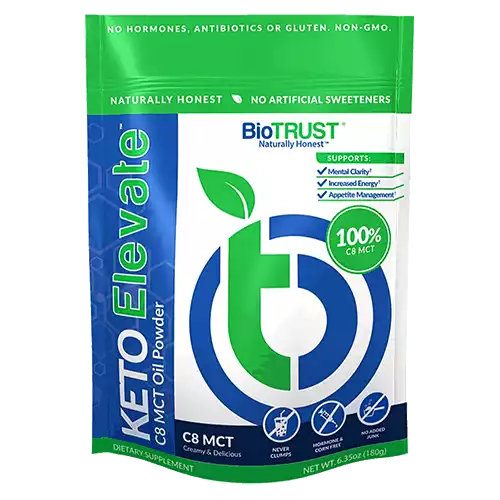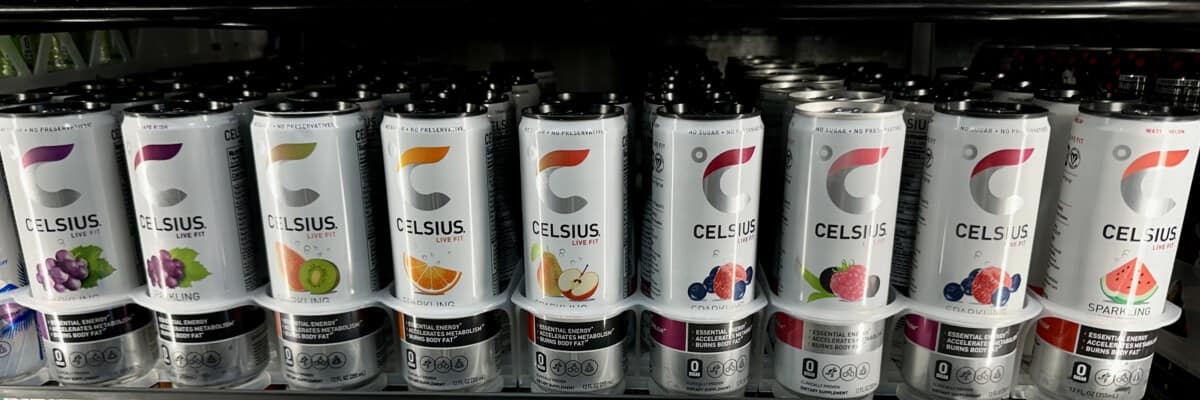If you’re a low-carb eater or going on the keto diet and trying to get into ketosis then I’m sure you already know just how confusing it can be with MCT oil vs coconut oil. Now both have quite a few similarities but there are significant differences that make each one of them unique with their benefits and cons.
Those who advocate for coconut oil claim MCT oil is a scam and nothing but a pricey oil. But then MCT oil users claim you’re getting the best parts of coconut oil in a “purer” form and it’s better for the keto diet and for getting into ketosis. The truth is both can help you produce ketones which have been found in numerous studies to enhance weight loss (1).
Both have their benefits and cons which I know can make things confusing. So who is the king of the ketones in the battle of MCT oil vs coconut oil? But here you’ll discover which one is the best when it comes to weight loss so you won’t end up wasting your money.
Which is Better MCT Oil or Coconut Oil?
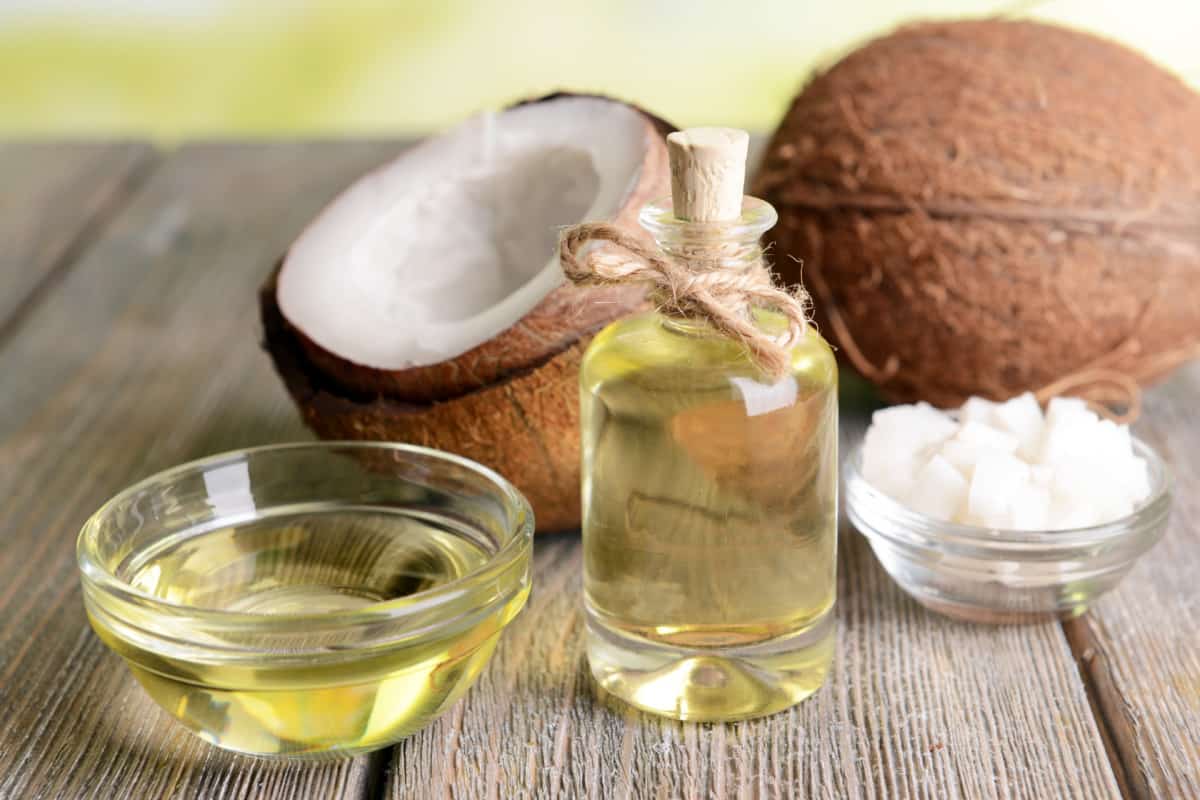
So what is in MCT oil? Think of it as a more refined coconut oil. MCT stands for Medium Chain Triglyceride (also known as medium-chain fatty acid) and it’s technically a saturated fat like coconut oil.
Your body breaks them down and utilizes them for energy very quickly. Coconut oil contains roughly around 50-60% medium-chain triglycerides but MCT oil contains 80%.
During the refining process, the manufacturer of MCT oil takes out the long-chain triglycerides (LCT). These MCTs are metabolized much quicker in your body than LCTs meaning it’s a quick energy source for you (2). There are four different kinds of medium-chain fatty acids including:
- C6 MCT (Caproic acid)
- C8 MCT (Caprylic acid)
- C10 MCT (Capric acid)
- C12 MCT (Lauric acid)
Coconut oil is about 50% lauric acid since its chemical structure has 12 carbon bonds (3). There is a smaller amount of C8 and C10 making up only about 14% combined. MCT oil on the other hand is almost all C8 and C10 which are processed differently in your body.
Instead of being digested like lauric acid… caprylic acid and capric acid are sent directly to your liver where they’re metabolized and used for energy (4).
C8 and C10 have both been shown to boost ketones but C8 is more effective (5). This results in improvements in weight loss and body composition. C12 lauric acid has anti-viral and anti-microbial properties but since it takes your body longer to break down it isn’t necessarily the best for ketone production (6).
Now coconut oil has a distinct taste and texture while MCT oil is a flavorless and odorless oil. At room temperature, coconut oil can begin to solidify while MCT oil will stay a liquid. You can use both to replace other oils or fats when cooking.
The benefit of using both MCT oil and coconut oil is they’re processed by your liver for energy and ketones. This is preferred for weight loss since other fats you eat need to be digested via your gut and then they’re more likely to be stored as fat for future energy (7).
How to Use MCT Oil for Weight Loss
Now when used properly can not only help you but it’ll also reduce belly fat. The trick is to know when and how to use the for optimal results.
should be taken in the morning with coffee. Coffee is a natural thermogenic which boosts your metabolism naturally allowing you to burn more calories. Then when you add to your coffee it’ll accelerate and upgrade your results to the next level.
One of the main benefits of the that helps you is eliminating carbohydrates. Carbs are your body’s preferred source of energy and want to use them up first over your fat stores. Once you start to cut out the carbs then your body creates ketones as the next energy source. And it makes these ketones from your fat stores.
Now once you start taking MCTs they’ll quickly be converted into ketones by your liver. These ketones trigger a signaling in your body’s metabolism to start burning fat for fuel. Just like you were on the but without having to actually be on the .
MCTs are a and you may notice it contains calories but these calories aren’t processed like normal calories. They’re sent to your liver where they’re processed into ketones so don’t worry about it breaking your fast especially if your goal is to . Ideally, for best results, you’ll be fasting in the morning until at least lunchtime.
If you don’t like coffee you can try adding it to a tea or another zero-calorie beverage including water. My preferred is Elevate which mixes easily into beverages and tastes just like a delicious creamer.
MCT Oil Health Benefits
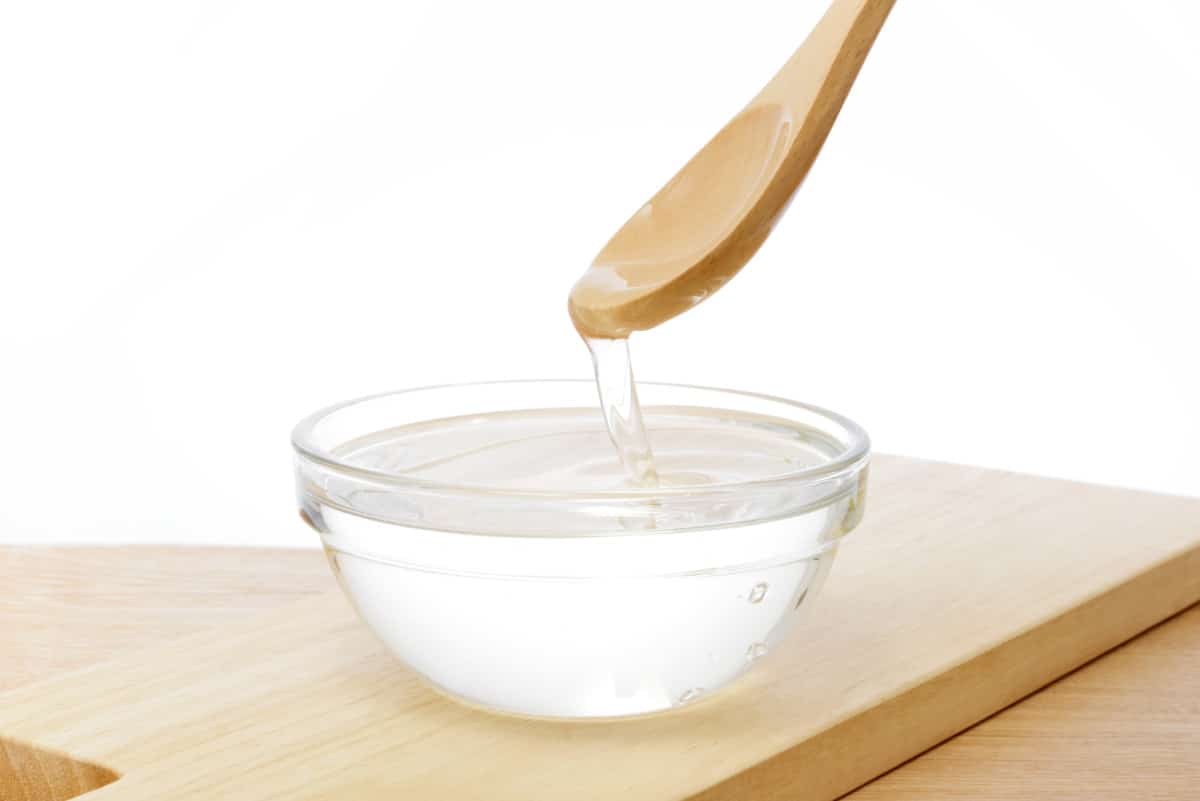
First off, MCTs have been studied rather thoroughly and have been found to boost weight loss (8,9,10). Taking MCTs boosts weight loss by increasing how many calories and fats your body burns.
Animal studies have found those fed MCTs ended up having a lower body weight, less body fat, and elevated metabolisms (11). And researchers have also found MCTs might even help increase the amount of brown fat that’s burned off in your body (12).
Another way taking MCT oil can you lose weight is by increasing your satiety. Studies have found those taking MCTs felt fuller for longer so you’ll be less hungry which will make you less likely to overeat (13,14). Those having MCTs in their breakfast ended up eating significantly less compared to those fed long-chain triglycerides (15).
It doesn’t take a rocket scientist to know the less hungry you are the more weight you’re likely going to lose!
Improvements in gut health are one more additional benefit of taking MCT oil. Your gut plays a vital role in your overall health as well as your metabolism and body composition. Studies have found it MCTs could be beneficial to those suffering from gastrointestinal disorders (16).
MCT Oil Side Effects & Cons
Now there are a lot of people who take MCT oil the first time and then the next thing you know they’re running to the toilet. MCT oil is known to have a strong laxative effect on many first-time users. But this could be a good thing if you suffer from constipation.
So if you’re new to taking MCT oil, I’d start by taking just a tiny amount (less than a tablespoon) and seeing how your body responds. Then you can work your way up to a couple of tablespoons a day. I’d also stay at home just in case disaster strikes!
One of the benefits MCT oil advocates claim is it’s a “purer” form of getting your medium-chain fatty acids but others just call it an expensive oil. Many coconut oil advocates claim it’s a more natural form than MCT oil. To make MCT oil it goes through a process called fractionation.
To do this the manufacturer heats coconut or palm oil above its melting point, allows it to cool then separates the solidified top off while keeping the liquid beneath. MCT oil made from palm trees is of environmental concern due to the destruction of rainforests for palm tree farming.
Coconut Oil Benefits & Cons
Multiple studies have found coconut oil to be beneficial to weight loss and losing visceral belly fat (17,18). The researchers also found coconut oil can help increase HDL (good) cholesterol as well (19).
Since coconut oil is high in lauric acid it’ll also be a better antimicrobial. This can help to also improve your gut health by killing off the bad bacteria in your digestive tract (20). Lauric acid is also an effective anti-viral and anti-fungal. People even use it topically to lower inflammation and treat acne (21).
One benefit I’ve found with taking coconut oil is it’s a lot easier to carry around with you. Since it solidifies below 70 degrees Fahrenheit it’s a lot easier to carry around with you than a container of oil. When the weather warms up I’ll just put it in the fridge instead of the pantry. It’s one of the healthiest oils for weight loss on the planet.
Coconut oil will inherently be less refined since MCT oil has to go through the fractionation process. Fractionated coconut oil might be a better option for you if you’re against consuming foods that have been processed and are not 100% natural.
There’s nothing wrong with the fractionation of coconut oil but depending on the manufacturer you don’t know what else they’re putting in there.
Coconut Oil Cons
On much of the internet, you’ll discover coconut oil contains about 60% MCTs but studies are finding it actually can contain less (ranging around 50%) (22). So you might not be getting enough of the beneficial C8 and C10 MCTs that you thought you were getting with coconut oil. This makes coconut oil less satiating than MCT oil.
There are some conflicting studies about whether or not coconut oil is actually heart-healthy or not. Some studies have found it can raise LDL (bad) cholesterol (23,24).
But then there are other studies finding coconut oil is more comparable to healthy olive oil with its fat content (25). In other studies, the researchers found coconut oil didn’t worsen LDL cholesterol but they did find those taking virgin coconut oil had improvements in HDL cholesterol (26).
So is MCT oil or Coconut Oil Better?
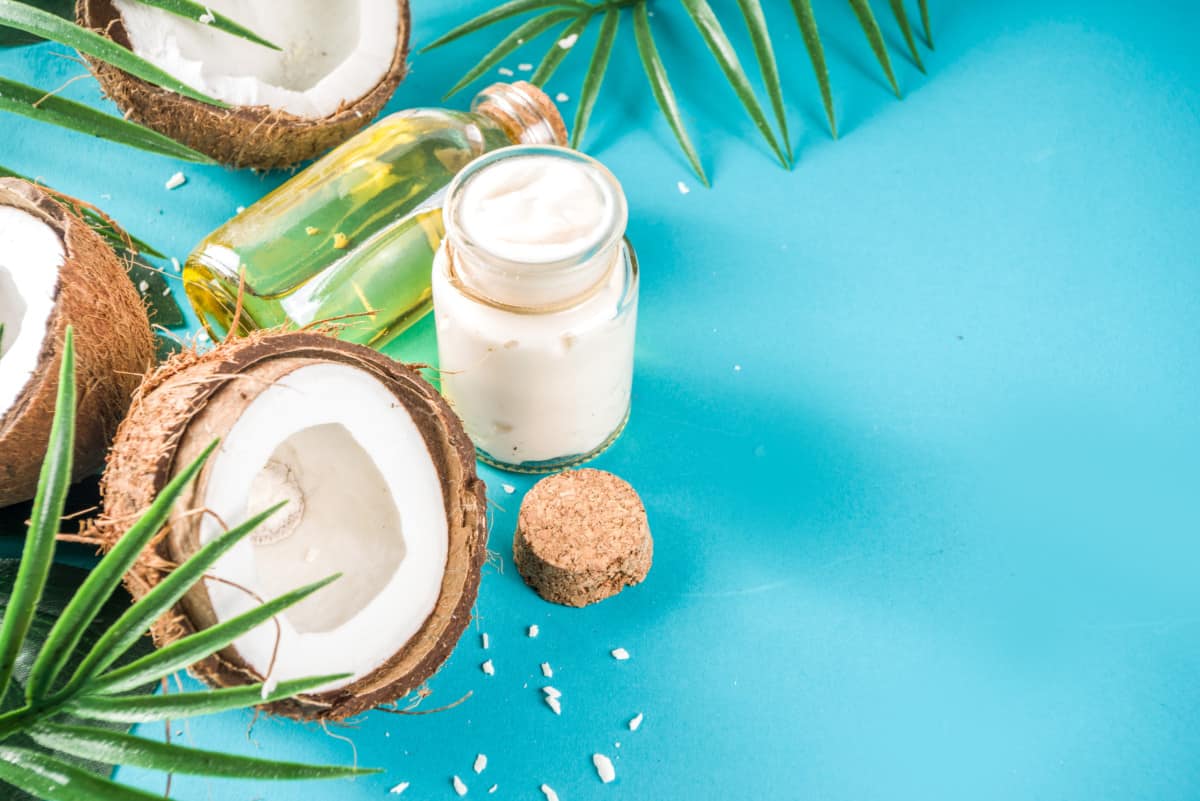
Like most people, you’re probably looking to find the best one for weight loss and energy…
So the winner is…
MCT oil!
It seems like when you weigh in all the factors MCT oil overall comes out on top for weight loss and energy. But it does come with a price so if it’s not in the budget then you can still get some great results with coconut oil.
Both are going to help with satiety but overall it looks like MCT oil is going to be metabolized quicker which means instant energy for you.
Now it’s true that MCTs won’t be stored as fat in your body and they’re converted to ketones via your liver. This means more of the weight loss benefits for you as studies have found MCTs to be better than long-chain triglycerides (27,28,29). One study found those taking MCTs burned up to 65% more calories than those on long-chain triglycerides (30).
Coconut oil itself (other than lauric acid) doesn’t contain a whole lot of nutrition other than saturated fat. When you break it down it looks like you’ll be missing out on much else. I know some coconut oil advocates claim it contains “micro-nutrients” you’d otherwise wouldn’t get with MCTs but I disagree. And since there are some “mixed” studies on the heart health benefits of coconut oil I’d rather limit my consumption it (but I do eat some).
But if you’re trying to eat as natural as possible then you might not be comfortable with MCT oil since it’s a “man-made” oil. It does go through a manufacturing process which is why it’s important to make sure you’re getting it from a reputable manufacturer. I’d also go with one that is palm oil-free since it’ll be a much more environmentally better choice.
I know some people respond differently to MCT oil. Some people experience jittery energy while others can have a strong laxative effect with it. That’s why I’d recommend starting very slow with it just to test your reaction. If it doesn’t work out then there’s nothing wrong with going with coconut oil instead.
Or even better go with an MCT supplement like Keto Elevate by BioTrust. It comes in an MCT powder form and uses 100% pure form of the superior C8 medium-chain fatty acids (31,32,33). The MCT powder is a lot easier to carry around and use than oil.
Plus with just about all other MCT oils you’ll end up getting some weird combination of C8, C10, and C12… but the best one for weight loss is far and away C8 caprylic acid. And since it’s in MCT powder form so it’ll be easier on your digestive system.
Support Many of the Keto Benefits Associated With Increased Ketones, & Support Them FAST, but Without the Difficulty of Doing Keto...
Increase Ketone Levels Inside Your Body to Boost Metabolism, Elevate Energy & Enhance Mental Focus
- 3X Better Than Coconut Oil, Butter or MCTs
- Heightened energy levels
- Reduced cravings & appetite
- Graceful aging
- Healthy metabolism
- Increased mental clarity & focus
- Heightened physical performance and recovery
MCT oil or coconut oil for your coffee?

If you’re looking to put either MCT oil or coconut oil in your coffee then I’d go with pure MCT oil powder. Your body will metabolize the pure MCT oil quicker which will mean more energy available to you faster. This is another reason why Keto Elevate is superior to MCT oils since you can easily scoop the powder into your coffee.
It’ll break your fast to have Bulletproof Coffee or having any coffee with butter, MCT, or coconut oil. So if you’re practicing Intermittent Fasting then it’s best to drink your coffee black or with a zero-calorie sweetener like stevia.
But if taking MCTs in your coffee helps to keep you from eating then it’s going to be a lot better in the long run. It’ll also save you from a blood sugar and insulin spike that you’d get eating a typical breakfast. This can help you keep a “semi-fasted” state, which is better than eating a bagel for breakfast. So it’ll be good in the long run if you’re able to wait until lunch for your first meal of the day.
The Last Word
At the end of the day, neither MCT oil nor coconut oil is going to be a magic bullet for weight loss. I wouldn’t expect miracle-level results when it comes to losing weight as there are many other more “bang for your buck” things you can do like focusing down on your diet and workout plan.
So you can’t sit on the couch all day snacking on potato chips and expect to lose weight. Adding in MCTs to your daily health routine will undoubtedly enhance how much weight you lose but it’s no miracle (34).
If you’re trying to lose weight then you’re still going to have to watch your calorie count for the day. Coconut oil is saturated fat so it’s going to contain a lot of calories (35). You can easily go over your calorie limit and fats for the day if you’re not closely watching exactly how much you eat.
You’ll also have to watch your fat content for the day as well. It’s not a good idea to constantly eat high-fat foods all day. Try to mix it up throughout the rest of the day with green leafy veggies and other high-protein foods. The short-chain fatty acids in vegetables will help to balance out some of these medium-chain fatty acids and long-chain fatty acids.
A lot of people find a balance by using MCT oil in their coffee and as a salad dressing while using coconut oil for cooking (36). Either way, you’re going to be much better off having these healthier fats than using seed oils like canola and soybean oil. So in the battle of MCT oil vs. coconut oil, the former is the close winner but there’s really no last place loser in this matchup.
Josh holds a Bachelor’s degree in Exercise Physiology and Nutrition Science. He’s a Certified Strength and Conditioning Specialist (CSCS) by the National Strength and Conditioning Association and he’s a Certified Personal Trainer (CPT) by American Council on Exercise. He’s worked as a Strength and Conditioning Coach at the high school and college levels. He has over 15 years of experience as a personal trainer and nutrition coach. He strives to bring inspiration and results for people to live healthier lives through smart diet and exercise.


